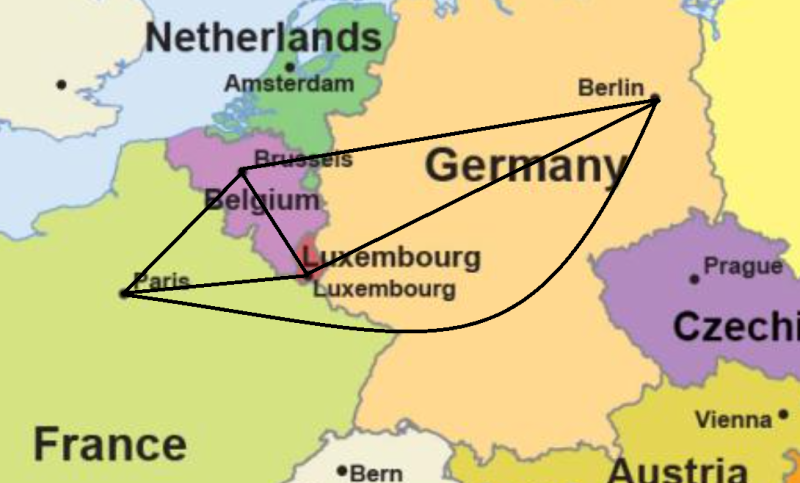It is the beginning of June 2018, when the Italian men's volleyball squad wins the first 3
matches of the inaugural Volleyball Nations League, beating Germany, Brazil, and Serbia within
one weekend in Serbia.
The Italian team, however, did not have time to celebrate the victory much - the next weekend they
had to play in Argentina, after that in Japan and South Korea, to end the month playing in Italy
again.
Flying across the globe in four weeks, had its toll on the team and they eventually finished 8th,
winning only 4 out of 12 matches after the first round. In contrast, the team on top of the table at
the end of the competition was France, who never had to leave Europe for their matches.
A few weeks later the French team failed and the Italians succeeded in qualifying for the final
rounds of the World Championships, which was organized without much traveling between
matches.
If we look at the second week, we see that Italy flew to Argentina, Brazil to Brazil, Germany to
Poland and Serbia to Bulgaria. All four teams played in different groups! Coincidence? No.
As the teams can't meet again (it is a Round Robin tournament), they have to play in different
groups. As there are four groups every week, there will be exactly one team from Group 4 in each
of the groups next week. And this holds for every group, every week.

Fairness is not evident
It is safe to say that traveling impacts the peak performance of teams and athletes in general -
studies have been done across all kinds of sports that confirm this intuitive idea. Thus, to avoid
unfair- and unhappiness, an organizer should aim to minimize the effect of travel time disparities.
Hier een quote uit het
artikel die interessant
genoeg is om uit te
lichten
If we look at the Volleyball Nations League (VNL), this has a set-up that
is very prone to be influenced by jet lags. There are 16 teams, who play
in 5 consecutive weeks, where every week all teams are divided into
four groups of 4, in such a way that all teams meet each other exactly
once; such a tournament, where every participant plays everyone else
once is called Single Round Robin.
The group stages are played in different venues anywhere on earth, so
there are 20 different locations used to host the groups. To participate
in the competition, teams may have to travel all around the world to
play, with only a limited time to rest. In the table below, the groups of
the Italian team during the Men's 2018 tournament are shown - notice how they meet all of their
opponents exactly once!
The Italian team, however, did not have time to celebrate the victory much - the next weekend they
had to play in Argentina, after that in Japan and South Korea, to end the month playing in Italy
again.
Flying across the globe in four weeks, had its toll on the team and they eventually finished 8th,
winning only 4 out of 12 matches after the first round. In contrast, the team on top of the table at
the end of the competition was France, who never had to leave Europe for their matches.





